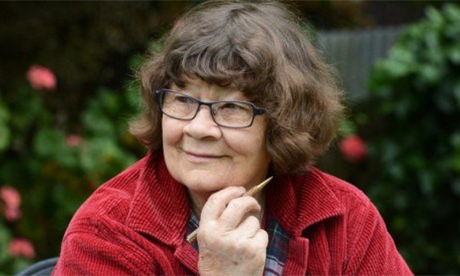Recently I read this statement from a progressive rabbi: “It is a sin to read the Torah as historical fact.”
He then went on to describe the importance of reading scripture as parable, allowing the Holy One to speak to us through it.
Ah, I thought.
He’s talking about the Catholic tradition of lectio divina.
Some of us who were brought up on the Bible, have come a long way from believing it was dictated word for word by God.
Basic research reveals the Bible as a library of books, a faith history written by men in another culture and other times.
Like us, they were trying to find the meaning of life and the sacred Presence that interacted with them.
That Presence was beyond human language.
People could only understand God through their culture and speak about God in metaphorical language that related to their lives.
Don’t we all do that?
Talk about dry
As a teenager in the early 1950s I attended a Bible study course on the Gospels.
Three learned men talked about the life of Jesus in Matthew, Mark, Luke and John as historical fact, ironing out inconsistencies and contradictions.
I was disappointed. The talks were as dry as dust.
When I opened my Bible to read these gospels, words came alive.
Some words jumped up at me. Some danced, tingling in chest and arms.
A phrase or verse could be a companion for a day or more and take me to a wider place that could not be described.
My friend Jesus seemed very close.
The Bible study course had nothing to do with personal experience.
It left me disappointed and bewildered.
Many decades later, I realised I’d been reading scripture as lectio divina, and had placed wrong expectation on an academic course.
I also learned that Mark, the first gospel to be written, was at least 60 years after Jesus.
Until then the teachings had been oral, passed down by the apostles.
So of course, there was no point in making idols out of words.
Human memory isn’t that accurate.
How do we read the gospels today?
The clue is in Mark and Matthew where we read that Jesus taught everything in parables.
Matthew emphasizes this in the Aramaic way of stating something twice – as a positive and then a double negative making a positive. “Jesus spoke all things in Parables. Without a parable was not anything he said.”
Dear old Mother Church is wise.
The books of the Bible are part of our heritage: in them we have the history of covenant from Abraham to fulfilment in Christ Jesus.
We gain much from reading these texts through the process of lectio divina.
The words do not stay trapped in our heads but flow through the openness of prayer, to our hearts.
There they will feed us.
The nourishment we need for the moment will stay with us and the words we don’t need will pass us by.
This is the Spirit of Jesus at work.
And because parables meet us where we are, their meaning will change as we change.
Reading the gospels this way brings us to the realisation that all of Jesus’ teachings come down to two things – love and non-violence.
I guess that can be further reduced to one thing.
It’s all about love.
- Joy Cowley is a wife, mother, grandmother, great-grandmother and retreat facilitator.
News category: Analysis and Comment.




